
In English:
In French:
In Arabic:
You can also listen to these video messages, along with other media or podcast interviews on this personal website:
Bambi's Thoughts

In English:
In French:
In Arabic:
You can also listen to these video messages, along with other media or podcast interviews on this personal website:

You can read or listen, as you wish… Of course, only if you still wish to stay informed.
Good luck to nurse Amy Hamm (and her young family). Luckily, she has the support of her lawyer, Ms. Lisa Bildy, the Interim President at the Justice Centre for Constitutional Freedoms. Thanks to journalist Drea Humphrey for interviewing them both.
Whether we agree with Ms. Hamm or not (this is not the issue), and regardless of the county, historical era, topic, point of view, the persons being censored, or those shamelessly silencing others, our societies would be intellectually richer if we ALL remember Voltaire‘s wise words:
“I disapprove of what you say, but I will defend to the death your right to say it.”
OR
“Je désapprouve ce que vous dites mais je défendrai jusqu’à la mort votre droit de le dire”.
https://www.rebelnews.com/bc_nurse_accused_of_being_transphobic_after_advocating_for_women_s_rights
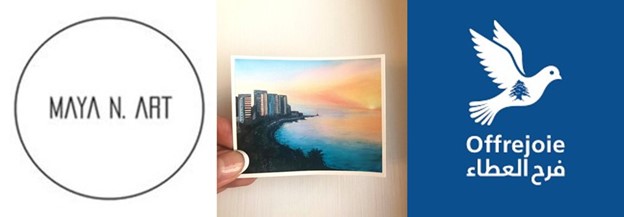
They say that a picture is worth a thousand words.
The FB and Instagram links below show you some pictures capturing Maya Nehme’s beautiful paintings!
https://www.facebook.com/mayaartmtl/
Bambi’s post is meant to introduce you to the above and to share the inspiring gesture this Montreal-based artist is doing for Lebanon.
First, here is the item in question:

The item above, which is the gesture to help Lebanon (not the other items) is described by the artist herself as follows:
| “Sticker reproduction of my original oil painting of Beirut, Lebanon. The painting is inspired by a photograph captured by photographer Rania Azar Berbery. Facebook: Photography by Rania (@photographybyRania). Instagram: @Raniaberbery” |
Disclaimer: The photographer mentioned above is Bambi’s own sister and she is proud of her too :).
More seriously now, Ms. Rania Azar Berbery’s lost many dear friends in the surrealistic Beirut port blast in addition to having had her youngest daughter and spouse both injured. On August 4, 2021, Rania and her spouse who almost lost an eye, her daughters, Bambi’s other sister and her family walked with thousands of their fellow citizens in solidarity with the victims’ families. They all demanded the truth and justice.
Despite a tough year on all fronts, including the economic situation, Ms. Rania Azar Berbery still captures the beauty of her capital. She even inspired Ms. Maya Nehme whose talent, in turn, captured one of these photographs. Bravo Maya and thank you for your generosity!
From the Etsy website shown below, you can read Ms. Maya Nehme’s moving words:
| “About Lebanon: As a second generation Canadian with Lebanese origins, I can’t help but share the sadness that the Lebanese people, including my family in Lebanon, are experiencing. People have been doing riots and protesting for basic human rights for years now. In 2020, an explosion hit the heart of Lebanon, leaving over 200 dead, over 6000 injured and 300 000 displaced. It is considered one the most powerful non-nuclear explosions in history. It has been a year since this tragic event, and it is still very hard for Lebanon to recover. No one is held accountable and the Lebanese people are left fending for themselves. Unfortunately, it does not stop there. According to the World Bank, the economic and financial crisis in Lebanon is possibly in the top 3 most severe crisis episodes GLOBALLY since the mid-nineteenth century. To help, I’m selling stickers of a painting I made of Beirut, Lebanon. All proceeds will go to Offrejoie. Yes, stickers might not save this country, but any donation is appreciated. I’m also selling the original painting that appears on the sticker. The painting will be up for sale soon, make sure to follow me on social media to not miss out. All proceeds of that one are also donated to the charity above. The painting printed on the sticker that I made of Beirut is inspired by a photograph taken by an amazing Lebanese photographer, Rania Azar Berbery (Facebook page: @PhotographybyRania; Instagram: @raniaberbery). It was so hard to chose an image to paint, as Lebanon has so many sides to it. I encourage you to check out her page and get to see Lebanon through the lens other than the ones portrayed by the media. You might be surprised! Where your donation is going: https://offrejoie.org/ Follow me on: Instagram: @mayanehmeart Facebook: @mayaartmtl (Maya Nehme Art) If you have any questions, feel free to message me or email me: mayanehmeart [!at] gmail.com. Thank you for your support! -Maya” |
The stickers costs CAD$5.45 (€ 4.73 or US$: 4.55). The item will ship to you from Montreal to anywhere in Canada (free of charge) and even to anywhere else around the world:
To conclude this post, Bambi will first share the following words about OffreJoie (copied/pasted from its own website shared above, available in English, French, and Arabic).
| “How We Came To Be Offrejoie was born in the midst of a raging civil war in Lebanon in 1985. A group of young Red Cross volunteers worked together to help the injured. They started with children’s camps during the conflict by bringing groups of children from different social classes and backgrounds together to accept each members’ differences. Those camps have continued their healing work since 1985, and when those children grew up, they carried the values Love, Respect and Forgiveness that they had learned at the camps and became a movement of young citizens from all the different communities and regions in Lebanon. What began as a group of enthusiastic volunteers in 1985 has developed into a voluntary movement across Lebanon with a footprint in France in 1986 and a sister group in Iraq established in 2012 to share and promote its vision and experience.” |
Last but not least, Bambi will thank Ms. Maya Nehme again wishing her a successful career. She has the talent. She has entrepreneurship. She also has a big heart!


Dangerous developments from the Middle East…
Here are two media articles by Reuters and L’Orient Today on “Lebanon’s Hezbollah and Israel trade cross-border fire amid Iran tensions“:
The United Nations Interim Force in Lebanon (UNIFL) issued a statement today about the VERY worrisome situation:
https://unifil.unmissions.org/unifil-statement-rocket-and-return-fire-6-august-2021
To Hezbollah, Bambi will say that your fellow Lebanese citizens cannot afford another (deadly) crisis. Please do not drag them into war on top of all their crises.
To Israel (and Hezbollah), please listen to UNIFL and cease firing NOW! Do not destroy Lebanon like in 2006.
Please stop… both of you!
Everyone deserves to live in peace (and love too) in Lebanon, Palestine, Israel, Syria, Iraq, Iran, the Unites States, etc. So, for a change and to conclude this post on a musical note, let’s imagine a world (i.e. the Middle East) in peace and harmony with the moving Ms. Talia Lahoud…


Bambi just discovered this song, released on August 4, 2021 to commemorate the sad first anniversary of the surrealistic Beirut explosion. It is a beautiful tribute to both France and Lebanon, to their history/heritage, values, and long friendship.
For those who do not know it, Lebanon was a French colony until 1943, year of its “independence”. It is officially a bilingual country (passport, state services, etc.) and it is a proud member of the “Francophonie”. France has always supported Lebanon. The Lebanese people love France. If you do not believe Bambi, well France is called “the tender mother” in Lebanese-Arabic.
Last year, when the Beirut blast happened, no Lebanese politician dared to walk in the streets to comfort the population. No one touched base with the victim’s families… until now, we learned recently!
In contrast, Mr. Emmanuel Macron rushed to Beirut immediately. He was the first to comfort the people of Lebanon. He hugged the traumatized residents on the streets. He listened to their distress. He spoke with them. He even re-visited more than once and tried to help on the internal political front… but it did not work.
Over the past few years, France has organized several fundraising conferences to support the Lebanese people. The latest one was yesterday. It was also attended by Mr. Biden who made a large donation in the name of his country. Thanks to the United States.
Of note, France and the international community have been putting pressure on the corrupt Lebanese leaders for a while, demanding accountability and financial reforms. A week ago, France and the European Union imposed targeted sanctions on the Lebanese politicians.
All the countries of the world, including Bambi’s beloved Canada, generously donated money, human resources, and materials/food to rebuild, to help feed and treat the injured people. More recently, Canada and other countries kindly supported the Lebanese Armed Forces (which cannot afford to feed its soldiers anymore).
Private donors, including Bambi’s generous fellow Canadians, have also supported the people of Lebanon directly. Thanks to each one of them!
As for the Lebanese politicians, it is Bambi’s hope that they will finally realize that their legendary corruption has affected the entire world, not just their own population. Every penny donated by foreign countries comes out of the tax payers’ pocket. Enough of irresponsibility please!
To conclude this post with music, below you can listen to the beautiful song (in French, sub-titled in Arabic).
FYI, the singers are Mr. Chadi Maroun & Ms. Sonia Ghayad. The lyrics are by Mr. Joseph Abou Dames. The music by Mr. Shadi el Bacha. The mixing/mastering by: Mr. Antoine Haddad. The video was produced by Studio 360 media. The choregraphy is created/directed by Ms. Gabriella Mur. The choral is called “Les jeunesse Saint Elie -Antelias”. The song was translated into Arabic by Dr. Joseph Khalil.
Thanks to all of them and bravo!


Bambi just discovered a new joyful (love) song while listening to her internet radio.
The singer is called Hanine and her song is the Lebanese-Arabic version of the French “Bella” by the French singer-songwriter of Congolese origins, Maître Gims.
Below you can listen to Hanine‘s Arabic version of “Bella” and watch scenes from Beirut and its beach. If you wish, you can also watch the beautiful original version of this song.
Enjoy :)!
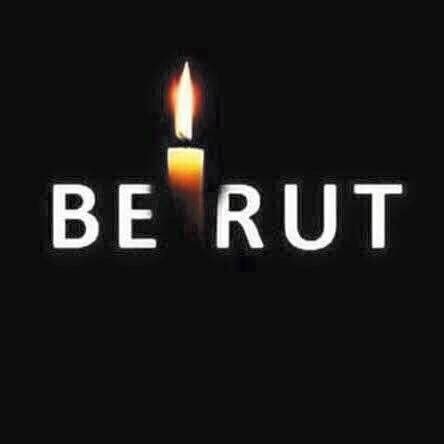
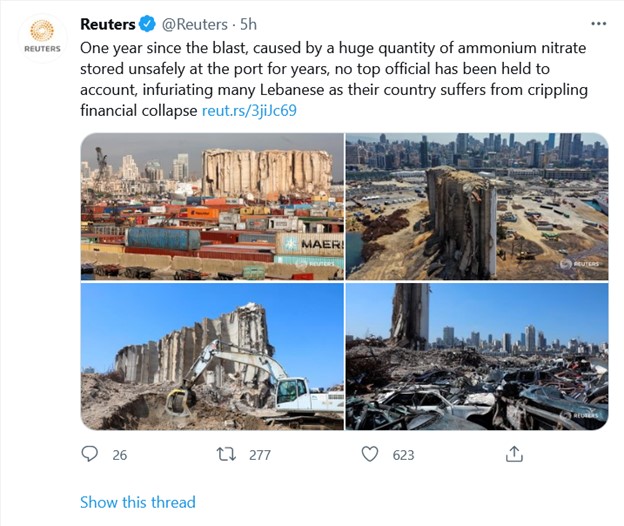
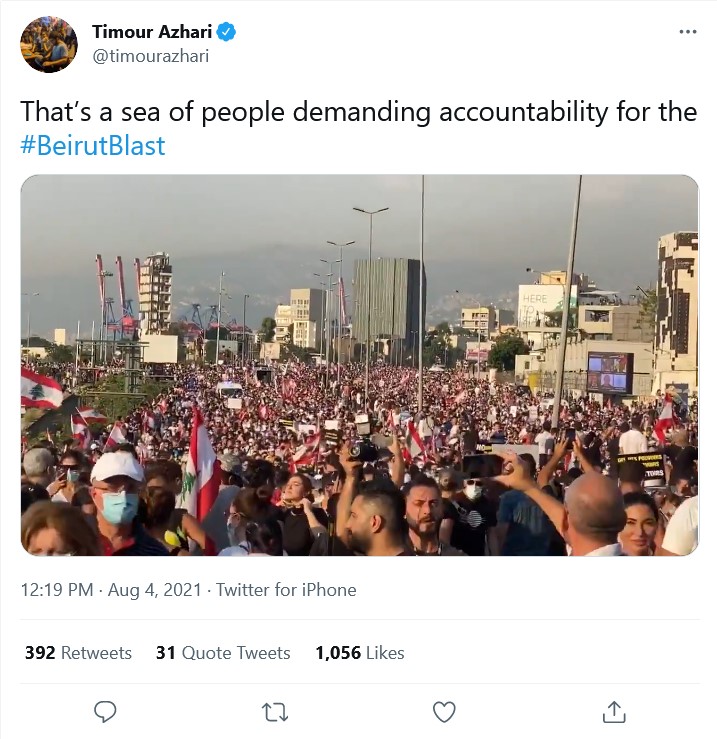
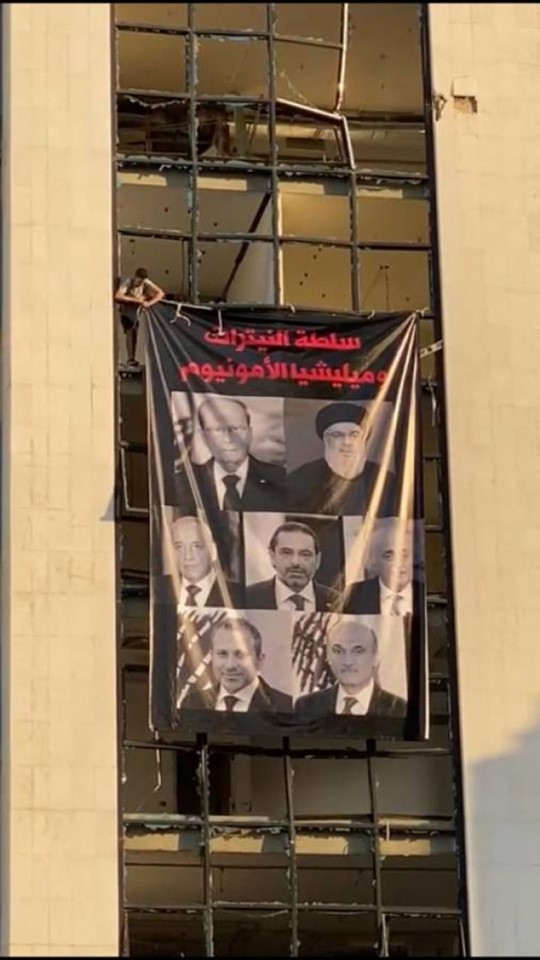

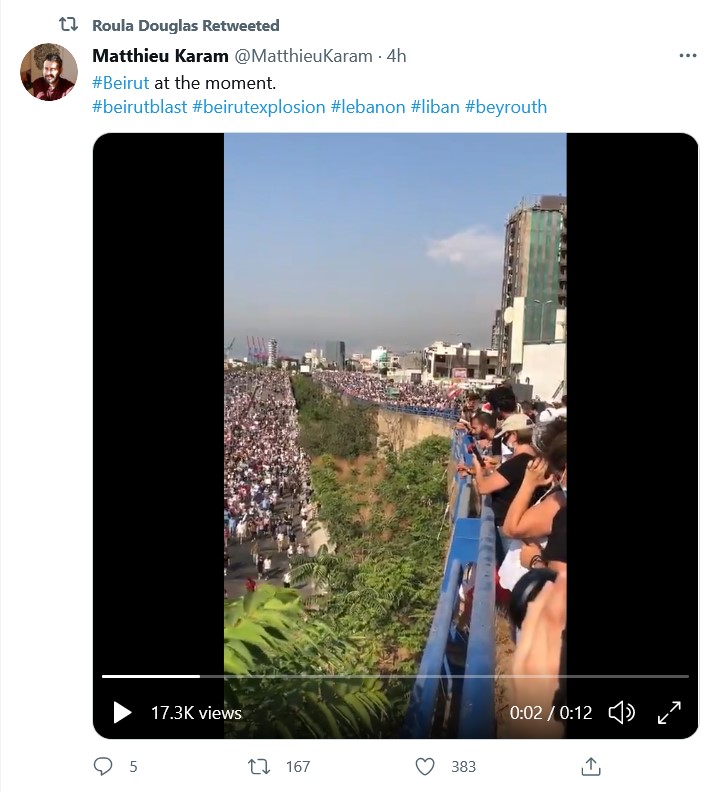
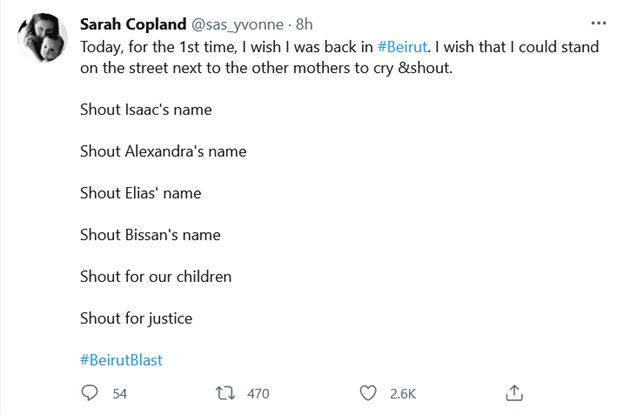
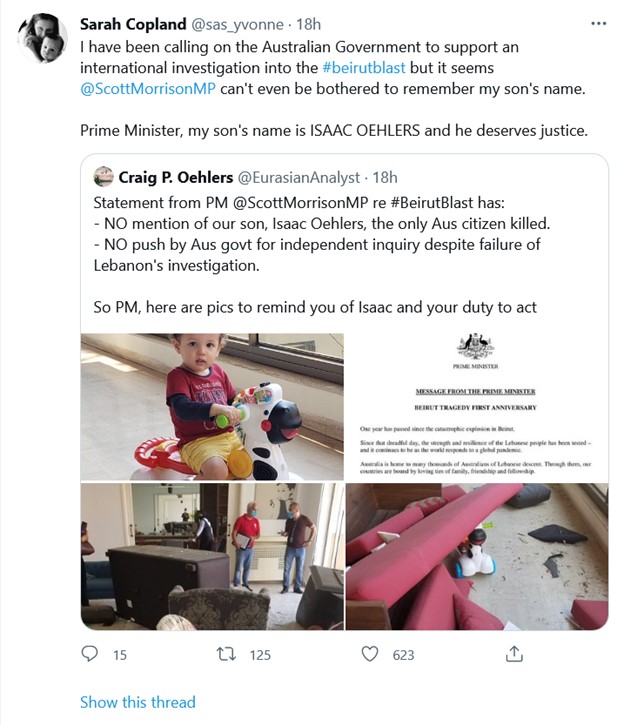
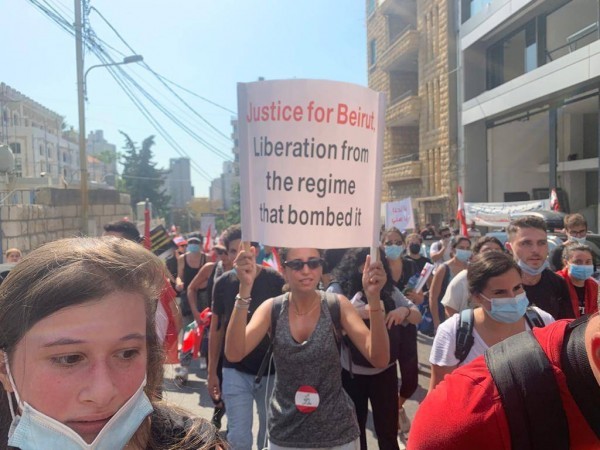



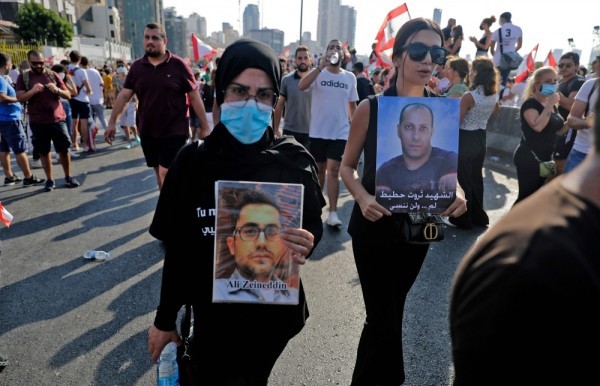
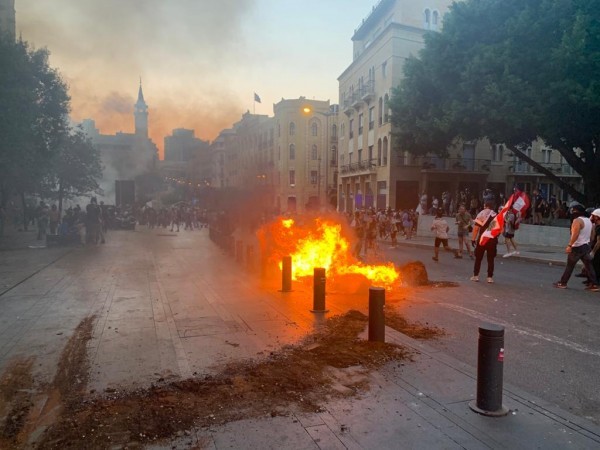

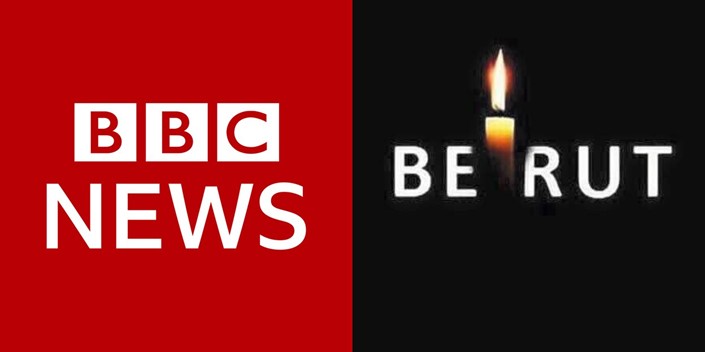
Thank you BBC News for speaking with some of the survivors of the Beirut blast a year following their surrealistic, yet still unaccountable, port explosion. Bambi’s heart goes to all of them, including her own family members and childhood friends. Some of them are still undergoing surgeries (hang on Dearest Maya!).

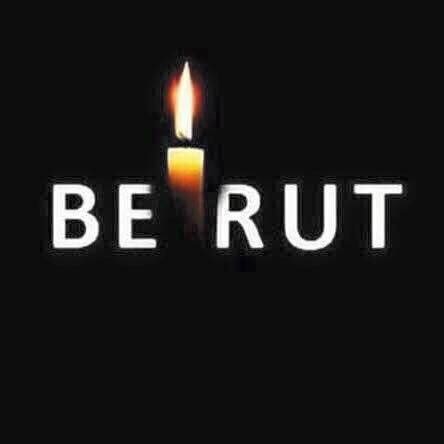
Thank you Beirut 607 and l’Orient Le Jour for reminding us of all the victims of the Beirut blast, showing their faces and telling us their stories. May their memory be eternal. May God know how to comfort the hearts of their loved ones, wherever they are right now in Lebanon, Syria, Ethiopia, the Netherlands, France, Canada, Australia, or elsewhere around the world.
Bambi will start by sharing the 219 victims’ beautiful faces. Then, if she may, she would like to offer Fairuz’ famous song, interpreted by a young moving singer called Maritta, to Beirut’s living victims of negligence, corruption, and of endless, destructive, warrior mindsets hijacking their capital’s charming soul.
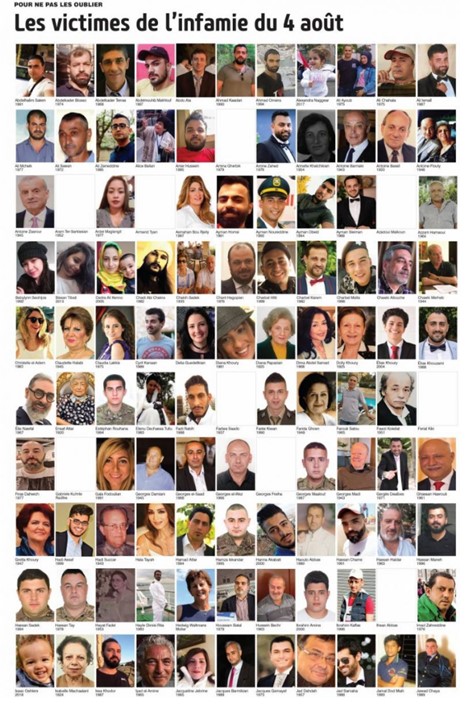
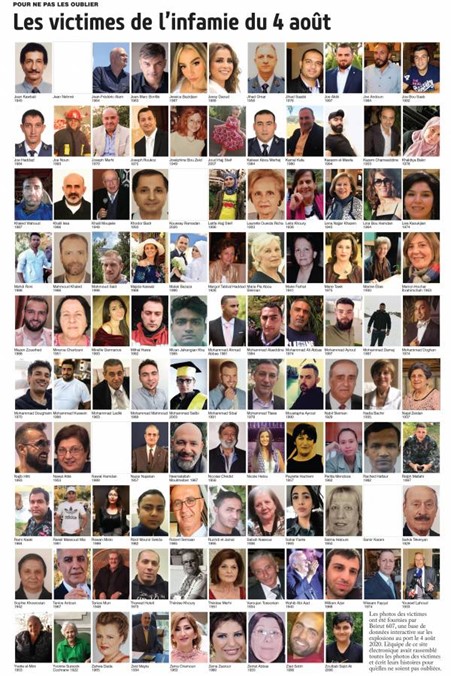


One of the CBC’s recent articles is entitled “Should British Columbia change its name? As we reckon with history, some say it’s time” (https://www.cbc.ca/news/canada/british-columbia/bc-name-change-1.6126983).
As per this article, “B.C.’s name is derived, in part, from Christopher Columbus, who paved the way for colonization of the Americas.”
Related to this topic, the Government of Canada itself (https://www.canada.ca/en/canadian-heritage/services/provincial-territorial-symbols-canada/british-columbia.html) informs us of the following origin of the name of this beautiful province: The southern part of the area now known as British Columbia was called “Columbia”, after the Columbia River. The central region was given the name of “New Caledonia” by explorer Simon Fraser. To avoid confusion with Colombia in South America and the island of New Caledonia in the Pacific Ocean, Queen Victoria named the area British Columbia when it became a colony in 1858.”
The relatively short history of Canada is complex.
Sadly, Canadian politicians are not showing lucidity, courage, and maturity to encourage us to look at all our past and all the memory of the past, with its very dark and brighter days, with a sense of responsibility as well as hope and a commitment to a better future together.
Instead of building this kinder and just future, our elites seem to be complicit in the destruction of shared symbols from the past and present (monuments, street names, churches, statues, censorship of books or persons, etc.).
Can someone tell Bambi if this a healthy solution to the excesses and abuses of the past? how will the destruction of our collective memory help us heal and face future adversity?
So, why is the CBC pushing for all this in one way or in another?
Our own tax money is ironically serving to fund a public institution, calling once again to erase our memory?
When will we instead begin to focus on bringing us together to heal and truly progress, as a country, not to self-destroy endlessly?